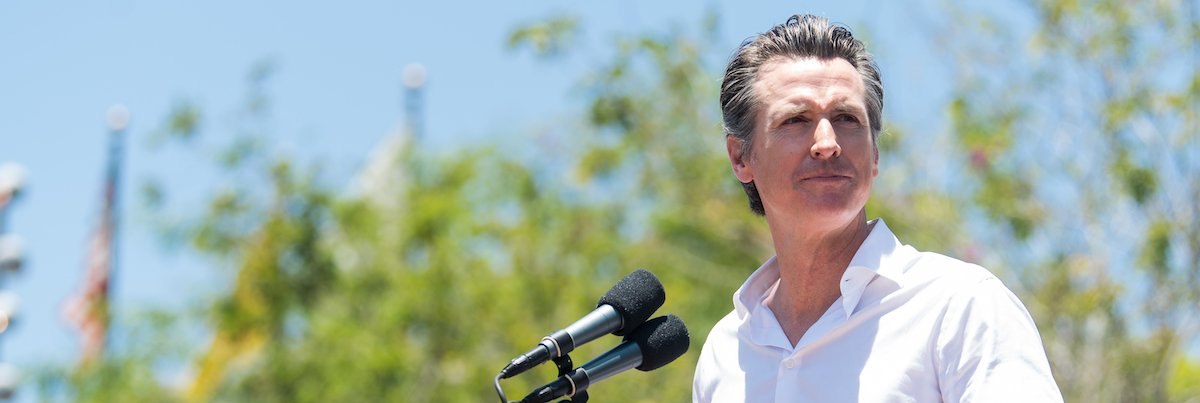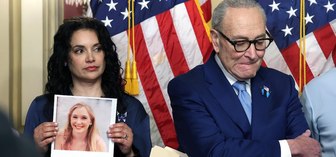Among likely voters in a new California poll conducted by YouGov, 57% percent say they will vote “no” on recalling Governor Gavin Newsom on September 14, while only 43% say they will vote “yes.”
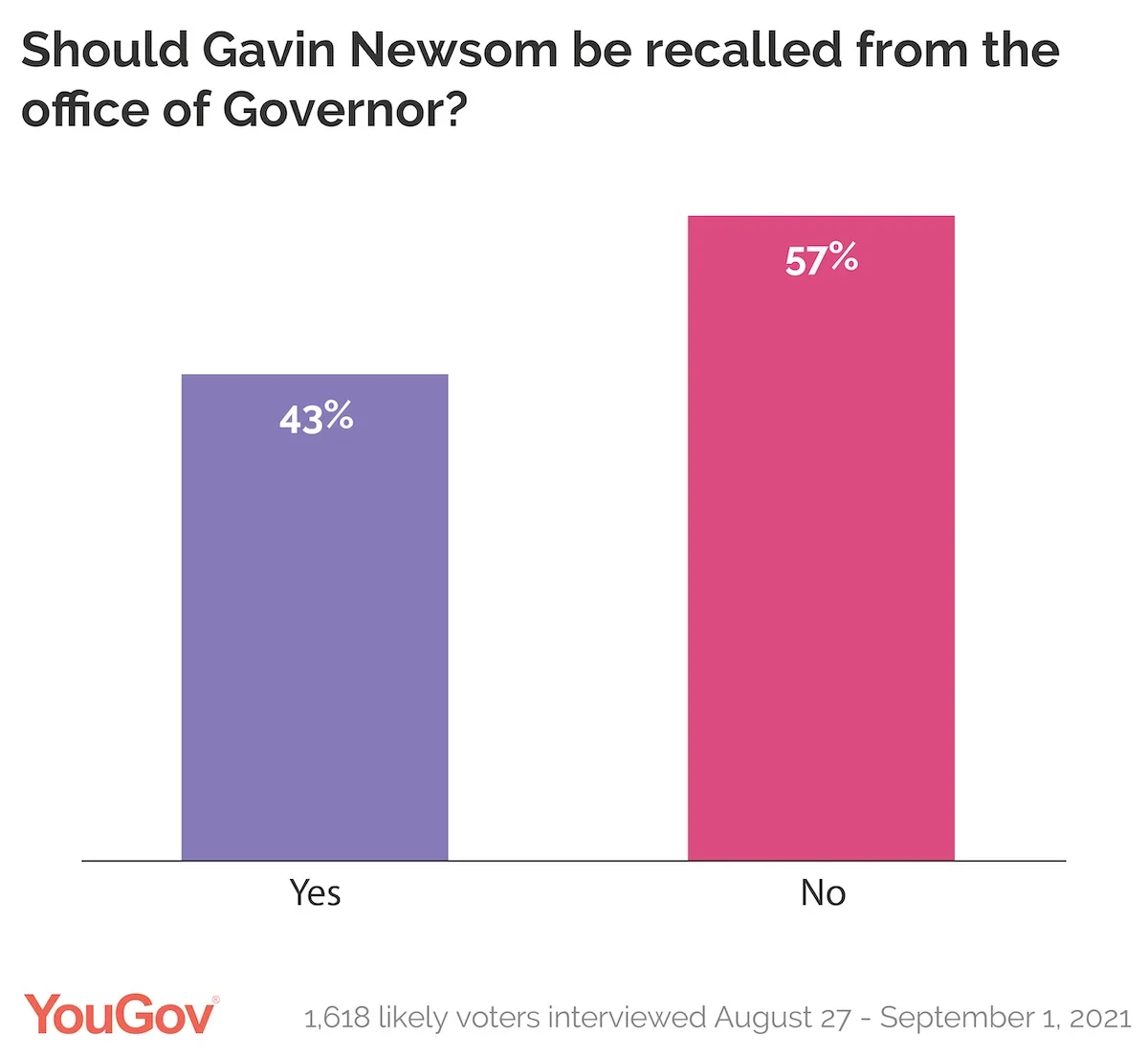
The Hoover Institution and Stanford University’s Bill Lane Center for the American West, in partnership with YouGov, conducted the new Golden State Poll of registered voters in anticipation of the gubernatorial recall election on Tuesday, September 14, 2021. YouGov interviewed 2,043 registered voters between August 27 and September 1, 2021. Results reported below are based on 1,618 likely voters who had received their ballots and said they had already returned their ballots or would definitely do so before election day.
The hopes of recall proponents that apathy might keep Democrats away and allow Newsom to be replaced by a Republican appear unrealistic. In fact, more than half of registered Democrats say they have already returned their ballots (compared with 24% of registered Republicans). Even allowing for high rates of late voting by Republicans, Democrats will still have the same 2:1 advantage among voters that they have among registrants. Less than 3% of voters were uncertain about how they would vote.
Nobody is Winning the Replacement Vote
Voters also get to choose a replacement for governor, though this only matters if “yes” gets a majority in the recall vote. In this poll, voters were shown a screen with 44 of the replacement candidates that looked like the actual ballot. In the poll, the leading vote getter was “none,” which was selected by 39% of likely voters. On the actual ballot, there isn’t a “none” option, but voters can leave the replacement vote blank. Conservative talk-show host Larry Elder receives the most replacement votes (24% of all likely voters). After Elder, Democratic social influencer Kevin Paffrath gets 7%, Republicans Kevin Faulconer 5% and John Cox 3%. The rest of the votes are scattered among the remaining 40 candidates. Despite her celebrity, Caitlyn Jenner is polling under 1%.
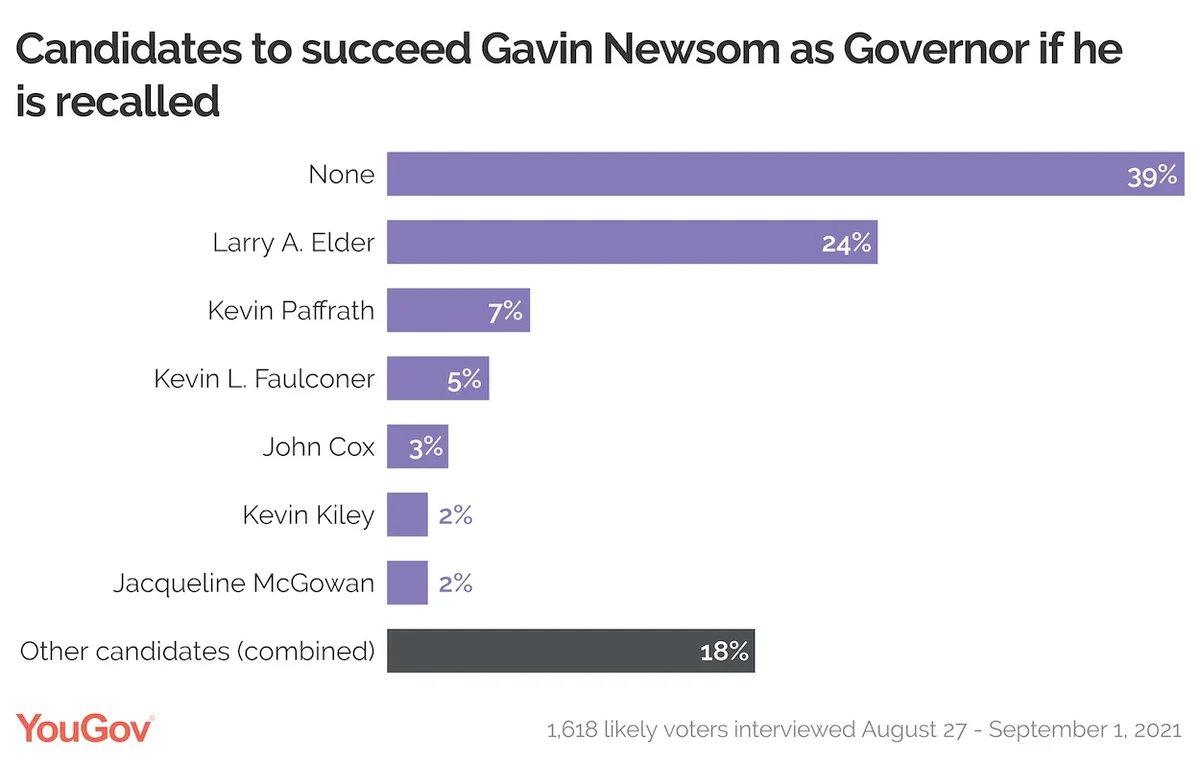
The rules of the recall don’t allow a direct comparison of the governor being recalled with possible replacements, so it’s possible that the result could be a replacement governor who would lose a head-to-head matchup with the incumbent. This would, in fact, be the case if a majority voted to recall Newsom. We asked voters directly whether they would prefer Newsom to Elder and Newsom was chosen by a 61-39 margin among all likely voters and 92-8 among Democratic likely voters. Newsom also defeated each of the other replacement candidates in head-to-head matchups, including the few Democrats on the replacement ballot.
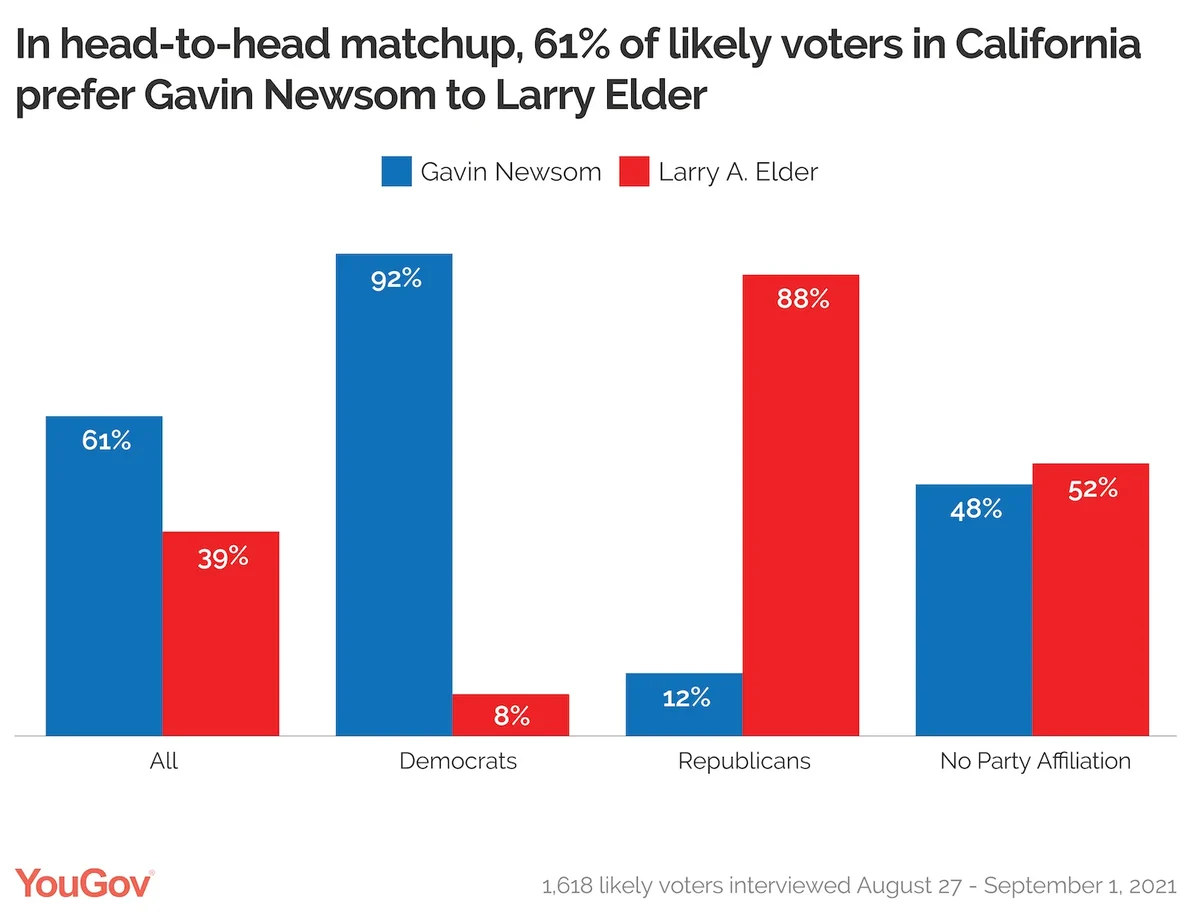
Why Newsom is Winning
Unlike the political environment surrounding the 2003 recall, when the Democratic incumbent, Gray Davis, was deeply unpopular and many Democrats were unhappy about how things were going in the state, Newsom’s Democratic base is neither unhappy nor dispirited. Newsom himself, while not beloved, remains moderately popular. It is Republicans who are discontent and, by themselves, there are too few to carry out a successful recall.
Californians are about evenly split between whether the state is “headed in the right direction” (46% of likely voters) or “off on the wrong track” (47%). These are not bad numbers for an incumbent. In comparison, 51% think the U.S. as a whole is on the wrong track and only 38% say it's headed in the right direction. Of course, this is highly polarized along partisan lines. Among registered Democrats, 63% say the Golden State is headed in the right direction, while 80% of registered Republicans and 57% of decline-to-state voters say it is off on the wrong track.
One measure of discontent with the state is people leaving. About 42% of voters said that they have considered moving out of California. This percentage is down a bit from two recent University of California polls, where about half of all respondents said they were considering moving to another state. But, again, propensity to consider leaving California differs by party. Over two-thirds of registered Republicans (68% of likely Republican voters) say they’ve considered moving away versus about a quarter (26%) of registered Democrats.
Newsom’s Weaknesses
While Newsom is popular enough to withstand a recall in a deep blue state, the poll did indicate some weaknesses. His overall approval rating stands at a respectable 54% -- almost as high as Joe Biden’s 56% approval rating among the same set of California voters. However, it is clear that Californians have less affection for Newsom than for Biden. Only 36% say they like Newsom “a lot” or “somewhat” as a person, compared to 50% for Biden. Thirty-eight percent say Newsom “says what he believes” compared to 49% who think Biden is sincere in what he says. Newsom is rated as less trustworthy and as caring less about “people like me” than Biden, too. Newsom also is perceived to be to the left of Biden. This doesn’t hurt him in liberal California, but only 21% say he’s a “moderate,” which could be a problem in a national campaign.
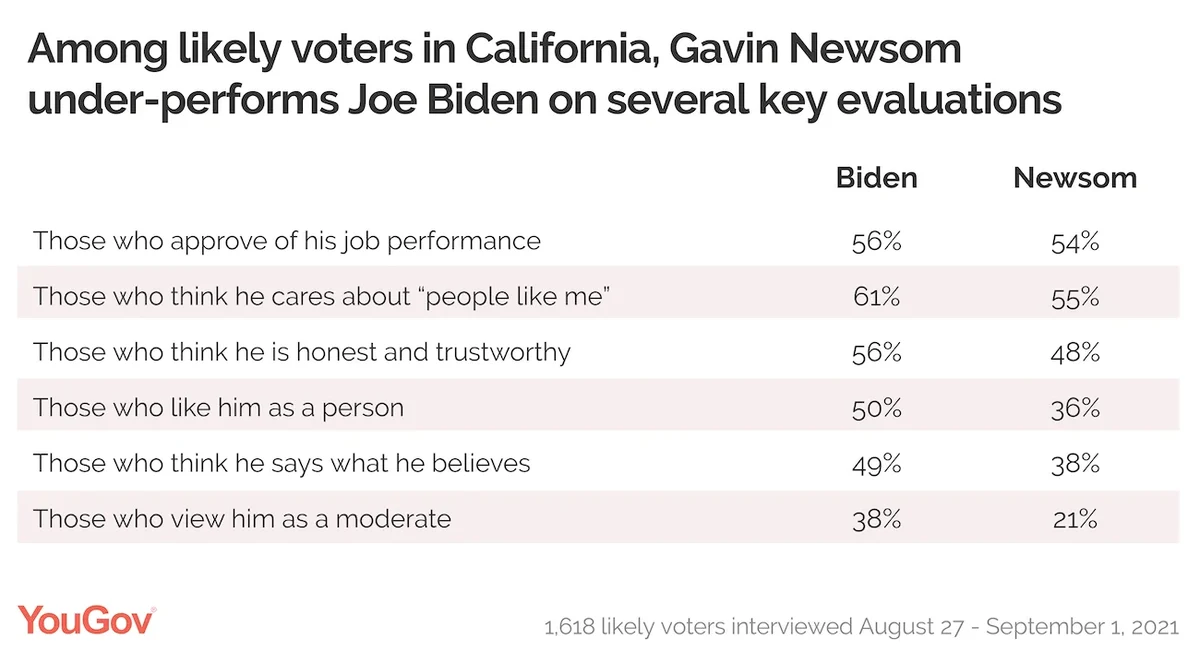
Finally, Newsom gets mixed reviews in his handling of some important policy areas. COVID-19 is the most important issue for voters in this poll and Newsom receives majority approval (55%) for his handling of the pandemic. Forty-seven percent approve of his reopening the schools and 43% of government spending. But support falls sharply, especially among independents, for his handling of crime (34% approve) and homelessness (only 20% approve).
Methodology: This poll was conducted in an internet survey with a sample size of 2,043 registered California voters between August 27 and September 1, 2021. The margin of error is approximately 2.8% for the overall sample.
See the toplines and crosstabs from this Golden State Poll for all registered voters and toplines and crosstabs from this poll for likely voters.
Image: Getty
